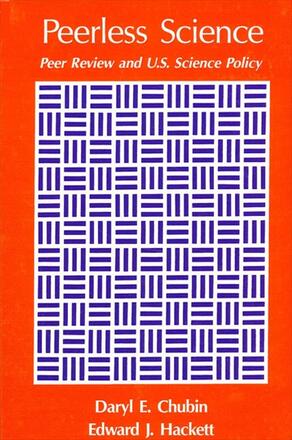
Peerless Science
Peer Review and U. S. Science Policy
Alternative formats available from:
Description
This book examines the structure and operation of peer review as a family of quality control mechanisms and looks at the burdens placed on the various forms of peer review. Assuming that peer review is central to the functioning of U. S. science policy, Chubin and Hackett explore the symbolic and practical value of peer review in the making, implementing, and analysis of this policy.
Daryl E. Chubin is Senior Analyst in the Science, Education, and Transportation Program, Office of Technology Assessment, U. S. Congress. Edward J. Hackett is Assistant Professor in the Department of Science and Technology Studies at Rensselaer Polytechnic Institute.
Reviews
"Peer review is the principle on which the internal governance system of science has traditionally depended. During the past ten years there has been a great deal of evidence suggesting that that assumption is no longer valid (if it ever was), and that many of the strains in the science-government relationship in the US are traceable either to the assumption itself or to the ways it is implemented. Chubin and Hackett examine the assumption and its implementation from different perspectives and explore its role in the science-government relationship.
"The authors display the ability to take peer review and use it as a springboard to illuminate a central issue of our time: the relationship between the conduct of science and the larger society in the US in the waning years of this century. The writing itself — colorful, interesting, heartfelt — is surprising and refreshing. " — William A. Blanpied, National Science Foundation